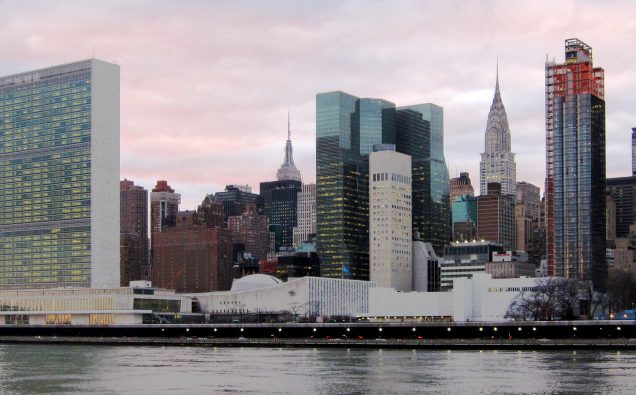
The United Nations, being the highest diplomatic forum, is an arena for world’s best and the brightest to navigate some subtle straits of diplomacy to advance their respective countries’ interest.
But this weekend, the usually bustling battlefields and corridors of diplomacy, went quiet at along New York City’s East River.
Reason? None other than the novel coronavirus, which has swept across the globe in a matter of months and forced nations to their knees. New York is one of the places with higher number of infections in the United States and like people from other walks of life, COVID-19 plays on the minds of many diplomats posted in the city from around the world.
After a diplomat from the Philippines tested positive for the coronavirus, UN Secretary-General Antonio Guterres ordered all staff at the headquarters to telecommute unless their presence was required for essential services, according to his spokesperson Stephane Dujarric.
The restrictions at the headquarters include reduced physical participation for diplomats at the meetings of UN Security Council and the General Assembly. Several side events in the coming week have also been canceled.
![Photo: By Patrick Gruban (originally posted to Flickr as UN Security Council) [CC BY-SA 2.0 (http://creativecommons.org/licenses/by-sa/2.0)], via Wikimedia Commons](https://www.viewsnews.net/wp-content/uploads/2016/01/United_Nations_Security_Council.jpg)
Image: By Patrick Gruban (originally posted to Flickr as UN Security Council) [CC BY-SA 2.0 (http://creativecommons.org/licenses/by-sa/2.0)], via Wikimedia Commons
The UN Secretariat oversees nearly 100,000 peace-keeping forces at conflict zones around the world, and employees and diplomats routinely discuss a wide variety of world issues at small and large meetings. Significantly reduced staff at the UN offices would adversely affect the work.
In a letter to the UN staff, Guterres sought to assure anxious staff that he was doing everything possible to protect them, telling them “your health and well-being remain my greatest concern.”
“Our world is facing an unprecedented threat, and the United Nations is facing one of the biggest challenges in our history,” the UN chief writes.
“The novel coronavirus, COVID-19, is having a major impact on us and our work, both at headquarters and in many of our field offices and duty stations.”
Under the policy, the staff will telecommute three days a week, five for high-risk employees, to reduce the population density at U.N. headquarters.
All side events at the U.N. headquarters from March 16 to the end of April have been called off.
“These are difficult times for everyone,” he said. “My message remains: be safe, be smart, be kind.”
The U.N. Security Council and the U.N. General Assembly have already announced plans to reduce the number of diplomats they bring to meetings and refrain from inviting visitors into the U.N. headquarters building. The U.N.’s International Day of Multilateralism and Diplomacy for Peace, scheduled for April 24, has been canceled.
Self-service in the crowded cafeterias in the building has also been recently banned.

















